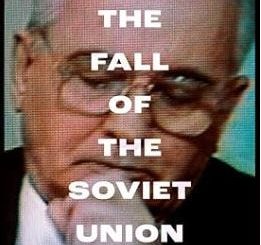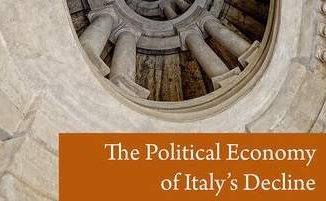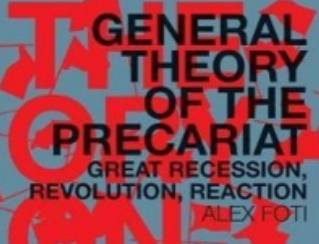
Book Review by Branko Milanović
Zachary Carter’s biography of Keynes “The price of peace” is not a typical biography. It opens when Keynes was 31 years of age in the Summer of 1914 working on pre-empting the banking crisis in England following the Sarajevo assassination and the near-certain slide of Europe into the war. It ends well past Keynes’ death as it covers the rise of Keynesianism in the United States. Keynes’ posthumous glory far exceeded, not the insignificant one, he had attained during his lifetime. This was made possible thanks to the adoption of his policies in America.
Carter’s prolonged view, way past Keynes’s physical end, is well justified. Were there no Great Depression and the New Deal, Keynes’ influence, even assuming that he would have written The General Theory would have been limited. Despite his many political connections, he was not much of a policy prophet in his own land. But with the New Deal and Roosevelt’s policies his glory was assured. In fact, FDR played for Keynes the same role that Lenin played for Marx. Without the politicians, both Marx and Keynes would have been moderately well-known political economists, agitators and pamphleteers. But once adopted by the powers-to-be (in the case of Keynes extending all the way to Reagan), their fate justified Keynes own view on the value of ideas, expressed towards the end of The General Theory: “Practical men, who believe themselves to be quite exempt from any intellectual influence, are usually the slaves of some defunct economist.”
Even if Carter does not spell it out, the book highlights the fundamental philosophical incompatibility between Keynes and the Austrians like Hayek and Mises. (Both of them play almost no role in the book, but the incompatibility between Keynes and the Austrians, and later Mont Pelèrin society and neoliberals is fundamental for the understanding of Keynes.) The incompatibility is based in the difference in the systems of value. For Hayek, economic mechanism of laissez-faire was a value in itself. Freedom to trade, to hire and fire, the sanctity of private property were values as such and independent of the outcomes to which they led. Indeed, Hayek and Mises believed that they would lead to higher income and thus greater happiness, but even if they did not–even if they led, as they often did, to monopoly and monopsony, depression and unemployment, political corruption and social stratification—they were still to be defended because they were valuable as such. This was freedom for Hayek.
But not for Keynes. Economic activity for Keynes, whether free trade, directed trade, government-controlled or whatever, was not a value in itself. It was a tool. Economic policies and even the economic progress were merely the tools supposed to bring to the humankind the end of scarcity and general abundance. Abundance was the goal because only under conditions where material goods cease to matter much can we dedicate ourselves to the finer things in life: to writing novels, going to opera, watching films, or composing verses. The goal of economics was to transcend itself. The more successful the economics the less we need it. The ultimate success of economics as a science is when it becomes redundant, when the society, like a smooth train rolling on a pre-set track, creates opulence without effort, with hardly anyone noticing. Economics’ irrelevance allows us to dedicate ourselves to the things that really matter in human life: beauty, learning, arts and sciences.
The goal of all economics is thus to transcend itself. This view of the world is completely alien to Hayek. If the science of economics is but a tool, and that tool is more efficient when used by the state, so be it; If the private capitalists handle it better, let the field be open to them. Keynes’ remarkable lack of dogmatic spirit derives from this. Economics is judged on its results, not on its internal consistency.
It is only thanks to his lodestar being abundance, that Keynes could have moved with remarkable ease between the various economic positions he held throughout his life. He supported free trade, laissez-faire and the gold standard when he thought that it was the best combination for a civilized life, but he equally supported state investment, the euthanasia of the rentier, and high tariffs when he thought that these policies were the most efficient. What characterized Keynes was remarkable flexibility as to the policies, and equally remarkable fixation on a goal.
While Austrians were dogmatic, he was flexible, But his flexibility did not derive from unsteadiness of purpose or fickleness. It derived from the view of economics as a tool for the achievement of a “good life”.
Expressed in Marxist terms that goal was the “entry” into the “realm of freedom”. There is a strong similarity between Keynes’ description of the post-scarcity society in Economic possibilities for our grandchildren written in 1936 and Marx’s German Ideology written a century earlier but published only in 1932 in Moscow. (The German Ideology was not known to Keynes.) Both thought that the real freedom begins when the drudgery of the division of labor and slavery to the Mammon end. Says Keynes: “The strenuous purposeful money-makers may carry all of us along with them into the lap of economic abundance. But it will be those peoples, who can keep alive, and cultivate into a fuller perfection, the art of life itself and do not sell themselves for the means of life, who will be able to enjoy the abundance when it comes.” Says Marx: “where nobody has one exclusive sphere of activity but each can become accomplished in any branch he wishes, society regulates the general production and thus makes it possible for me to do one thing today and another tomorrow, to hunt in the morning, fish in the afternoon, rear cattle in the evening, criticize after dinner, just as I have a mind, without ever becoming hunter, fisherman, herdsman or critic.”
Ending our slavery to the Mammon is not possible as long as all of us are not sufficiently rich or at least sufficiently happy with what we have so that we can work only the minimal amount of time and spend the rest in much grander and fun pursuits.
Keynes’ own life is an illustration of what that better, grander life should look like. He was an art critic, civil servant, journalist, statistician, designer of international organizations and their most fierce critic, patron of arts, academic economist, stock jabber, socialite, writer of essays, and finally the author of The General Theory. Small people might call him the jack of all trades, but in truth he was a Renaissance man and he thought that the humankind will never be free until everyone could afford a life close to the one he was fortunate to have lived.
The Price of Peace by Zach Carter
Publisher: Random House
ISBN-13: 978-0525509035





Be the first to comment